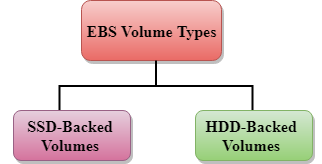2. Introduction to EC2:
Amazon Elastic Compute Cloud (Amazon EC2) is a web service that provides secure, resizable compute capacity in the cloud.
Elastic(scalable), Compute(virtual server- cpu,ram,disk), Cloud (cloud compute instace)
EC2 Instance Types
General purpose - General Purpose instances are designed to deliver a balance of compute, memory, and network resources. They are suitable for a wide range of applications, including web servers, small databases, development and test environments, and more.
Compute optimized - They excel in workloads that require high-performance processing such as batch processing, scientific modeling, gaming servers, and high-performance web servers.
Memory optimized - They are suitable for applications that require large amounts of memory, such as in-memory databases, real-time big data analytics, and high-performance computing.
Storage optimized - Storage Optimized instances are optimized for applications that require high, sequential read and write access to large datasets. They are ideal for tasks like data warehousing, log processing, and distributed file systems.
Accelerated computing - Accelerated Computing Instances typically come with one or more types of accelerators, such as Graphics Processing Units (GPUs), Field Programmable Gate Arrays (FPGAs).
Q. What Is Horizontal and Vertical Scalability?

Horizontal scaling is also known as "scaling out". It involves adding more instances to the environment, sharing the processing and memory workload across multiple devices.
Vertical scaling is also known as "scaling up". It involves adding more compute power to existing instances or nodes. This can include upgrading the CPUs, memory, storage, or network speed.
What is EBS?
EBS stands for Elastic Block Store. EC2 is a virtual server in a cloud while EBS is a virtual disk in a cloud.
Amazon EBS allows you to create storage volumes and attach them to the EC2 instances. Once the storage volume is created, you can create a file system on the top of these volumes, and then you can run a database, store the files, applications or you can even use them as a block device in some other way.
EBS Volume Types

Amazon EBS provides two types of volume that differ in performance characteristics and price. EBS Volume types fall into two parts:
SSD-backed volumes
HDD-backed volumes
SSD
SSD stands for solid-state Drives.
It is a general purpose storage.
SSD storage is very high performing, but it is quite expensive as compared to HDD (Hard Disk Drive) storage.
HDD
It stands for Hard Disk Drive.
The size of the HDD based storage could be between 1 GB to 1TB.